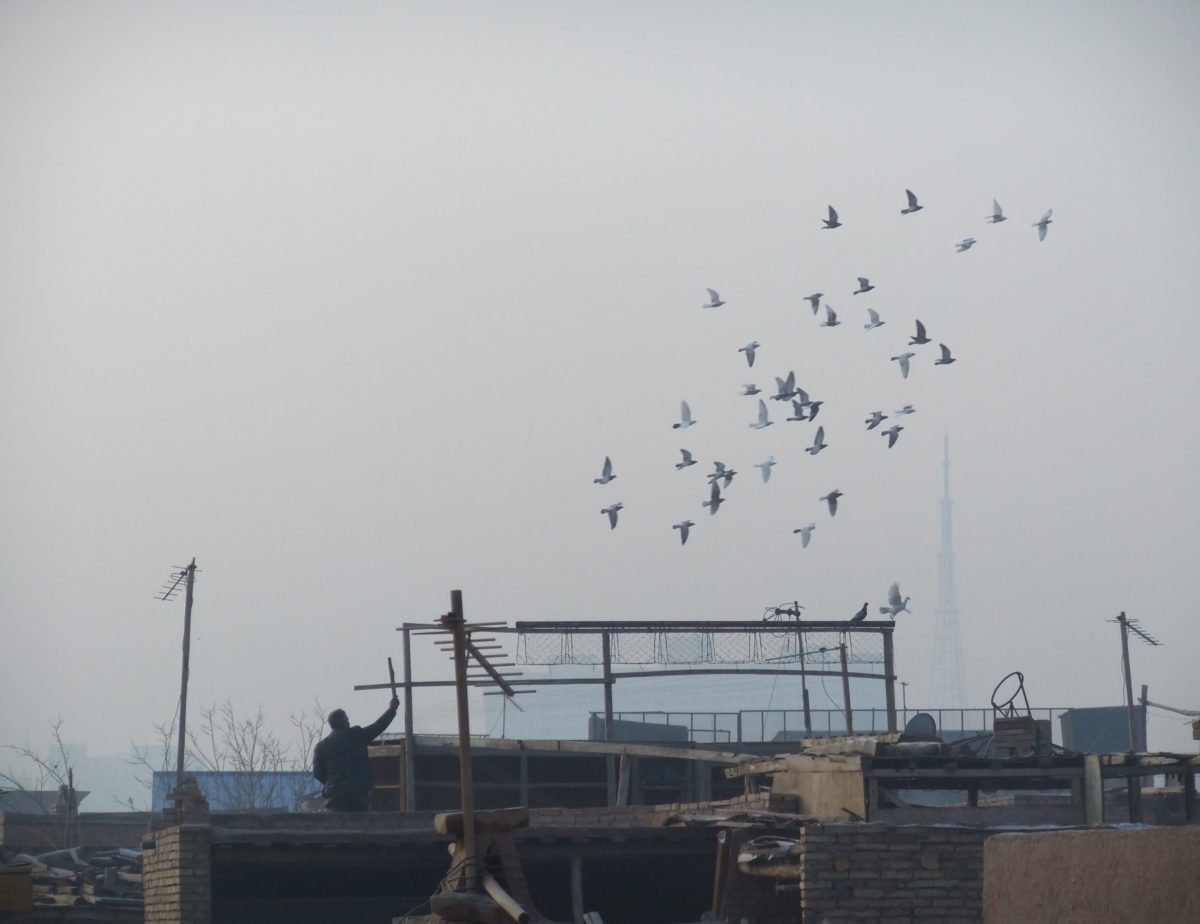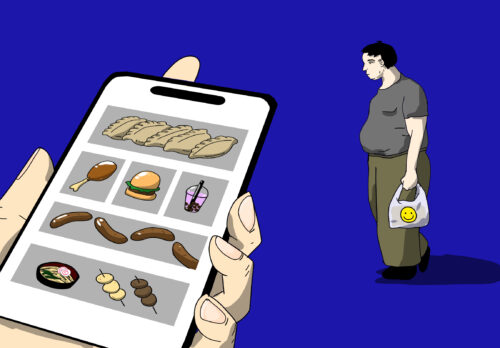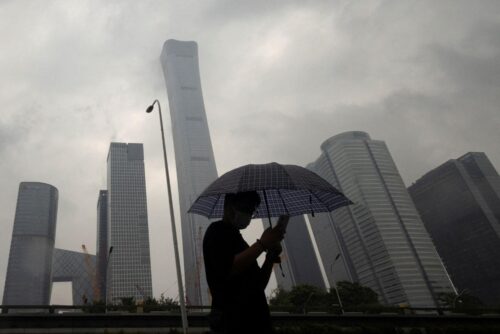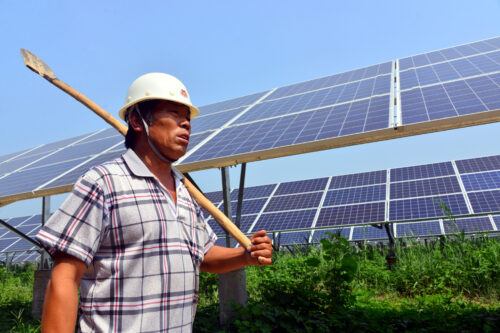The people helping Uyghur children struggling to build new lives in Turkey
Addiction, homelessness, and low self-esteem plague Turkic Muslim youth cast adrift, far from the financial and emotional support of families locked down in China since 2016. The China Project spoke to older Uyghur exiles dedicated to making positive change.

Abdusemi was distracted. He had just been dealing with a young Uyghur man who tried to take his own life, and with another teenager who ran off halfway through drug rehab. He was frayed but resigned. This was a typical day. The psychologist who volunteered to help him shoulder the burden of supporting these ethnic minority kids fleeing China gave up three months into his term under the strain. Now Abdusemi was alone again.
Abdusemi Hoten runs a hostel in an Istanbul suburb where many of the city’s 50,000 Uyghurs settle, housing boys and young men who have fallen into drug and alcohol abuse and are seeking refuge from sleeping on the streets or in derelict buildings. He made mistakes himself after losing touch with his own family in 2016, and he feels called to rescue others from what so easily might have been his own fate.
He knows what they go through. News of his own family’s treatment by Chinese authorities shook him hard. His mother was taken to a so-called reeducation camp and his father was sentenced to five years in prison. He has had no news from either parent since. Penniless, Hoten’s life unraveled quickly. He ended up taking drugs and living rough until an uncle found him and gently guided him back. Now, in his mid-thirties, he is newly wed and in the final stages of a Ph.D.
The hostel survives from hand to mouth. Its original funders, the East Turkestan New Generation Movement Association in Istanbul, and the U.S.-based Campaign for Uyghurs, left Hoten to manage it on his own. His peppercorn salary from random handouts barely covers the rent, but his commitment to the cause is unwavering.
“I have tried to hand the project over, but no one wants to take it on,” Hoten told The China Project. “They don’t feel like I do about these guys. If I don’t do this, who will help them?”
The donation in 2019 of a four-story apartment building by a well-wisher was just the start of Hoten’s efforts to assist the scores of young Uyghur males he found sleeping in the basements around Istanbul, high on the drugs Chinese traffickers scared them into peddling. In exchange for the dirty work, the young Uyghurs were promised that their families would be “looked after” back home in Xinjiang.
“If they refused, they were told their families would be harmed,” said Hoten, who frequently scours the neighborhood at night for kids sheltering on construction sites. “In their vulnerable state, they were prepared to believe anything.”
The problems the Uyghur youths face are complex. Some as young as 14 became de facto orphans when the money their parents sent for their Turkish education dried up and the emotional rug was pulled from under them.
“Not only were they left to fend for themselves, but they worried all the time about what was happening to their families,” Hoten said. “Stories of child abductions, rape, and long prison sentences filled their days and nights. They felt lost.”
For an exiled Uyghur in Istanbul, success is difficult to measure. Facing the many who don’t make it every day, Hoten often is tempted to lose heart. Today, however, he basked in one of his triumphs. He had just received an invitation to the wedding of a former hostel resident.
Mewlan had come to Hoten hooked on cocaine. It had been a long and slow path to recovery. After three weeks in the “cold turkey suite” at the top of their building, where residents sweat it out with pain killers as a last resort, Mewlan graduated to the third and then the second floor, each with more freedom. Every now and again, he relapsed and stole hostel equipment to get his next fix, but soon he would return contrite, ready to try again.
Hoten believed in Mewlan and always took him back. Finally, he was ready to be sent on a work placement, far from Istanbul and temptation, to a restaurant in Central Anatolia. He was billeted with a family in Kayseri, where a large community of Uyghurs flourishes. They helped to keep him on the straight and narrow. He met his Uyghur fiancé there, and the rest is history.
“This kind of success keeps me going and helps me feel like all those struggles were worth it,” Hoten said.
The hostel was almost at capacity with 36 residents going through a program of lectures, activities, English lessons, and work placement for those who were ready. Specialist medical and psychological help was called on regularly for pro-bono assistance.
“The need is overwhelming,” Hoten said. “We are a small outfit and need to expand, but I am one person and cannot do everything.”
Faced with his own limitations and a building whose crumbling masonry is an earthquake hazard, he fears for the future.
“These problems are urgent and not going to go away. As the years go by waiting for news from home, the trauma is also increasing. These guys need more help than I can give them alone,” Hoten said. “We need a reliable funding source and a new building or I cannot guarantee the future. We have many success stories like Mewlan. They are all worth helping.”
Healing arts
Samarjan Saidi, 34, runs a youth center in the heart of a conservative Uyghur suburb in Istanbul, not far from Hoten’s hostel. He, too, has seen Uyghur youth fall prey to cheap Chinese drugs and spiral down. He knows of two drug deaths and a couple of others who returned voluntarily to the Uyghur region, not able to face a future without their families, despite knowing that “reeducation,” or worse, awaited them. They have not been heard from since.
“Hopelessness is the big mental health issue here,” Saidi told The China Project. “Their future stretches unpredictably in front of them. Even if they have plans, there is no one by their side to help see them through.”
Saidi, born in the Uyghur region, was taken to Denmark at the age of 10 by his mother, who left Xinjiang to pursue a doctorate. His father and brother stayed behind and were marooned when Beijing began the clampdown on China’s Muslim minorities. Saidi became a Danish citizen and eventually trained as a civil engineer. Concern over the plight of those fleeing their homelands led him to abandon his career to work with refugees who landed in Denmark. For nine years, he ran a boxing gym catering to that growing community, but his hankering to return to his birthplace never left.
When a return to northwestern China became impossible, Saidi decided instead to travel to Turkey to help expose what China was doing to Uyghurs in Xinjiang. In Istanbul, he made himself available as a translator to international reporters interviewing the first wave of Uyghur refugees.
Saidi collated 2,500 witness accounts given by Uyghurs who escaped the roundups in China. Over three years, he processed an avalanche of interviews, translated countless testimonials, and coordinated recovery workshops.
“The trauma of listening to all this every day was just too much,” Saidi said. “I couldn’t take any more pain. I became stressed and depressed, and had to take a step back.”
He moved sideways, starting a kickboxing club for young Uyghurs. They met in a dark basement and, after expanding to tutoring English and math, his venue became a thriving hub. Funding became available to move aboveground and eventually they found a large, light, and airy floor of an office block, a beauty parlor abandoned during COVID. Three months later, painted and decorated, it was transformed into what initially was named the Palwan Youth Center. Palwan means “strong man” in Uyghur. Artistic young Uyghur boys and girls piled in to assist in fixing it up and, wanting a softer feel, renamed it the Bostan Youth Center. Bostan means “oasis.” The kickboxing club moved nearby and continues to be popular.
Saidi is full of ideas for courses and projects he’d like to pursue, but defers to the kids’ leadership. There are 300 young Uyghurs registered with the center and, daily, about 30 regulars turn up to drink tea, chat, play cards, and watch movies together, discussing them afterward. Some practice guitar or the long-necked two-stringed lute called the dutar. Others pick up woodworking and movie-making skills in a workshop. Still others learn to create in the art studio.
“We’re slow and deep. Not a quick fix,” said Saidi. “Our kids like to be secret, so there are no films or videos of them. They need to feel safe here.”

Their first group project was the “Uyghur Genocide Museum,” a multimedia simulation of detention camp conditions suffered by their relatives and friends in Xinjiang. It opened in Istanbul to local and international visitors for a week in November 2021, filling a series of spaces in the arched corridors of the East Turkistan Foundation with satellite images of internment camps, photos, news features, and their own artistic renderings inspired by reading survivor accounts given to the Uyghur Tribunal in London in 2021. A central feature of the exhibition was a cold steel “Tiger Chair,” to which prisoners are tied and forced to confess, and a table full of instruments of torture.
“They wanted to show visitors that this is real and it is happening to people today,” Saidi said. “They feel strongly that the world must know what is happening to their people.”
China news, weekly.
Sign up for The China Project’s weekly newsletter, our free roundup of the most important China stories.
The Bostan Youth Center is manned by around 10 adult volunteers who come to hang out with the kids. Saidi is the only full-timer, paid sporadically whenever donations come in. They operate an informal mentoring scheme and look out for youngsters who are struggling.
“We try to understand each kid — who they are and where their interests lie,” Saidi said. “Some are very needy spiritually and emotionally. They have a lot of trauma and their situation is complicated.”
Young Uyghurs at the center often are matched with volunteers who have a psychology background.
“It takes a while for those who come to build trust in a community where suspicion is rife,” Saidi said. “Some want help with practicalities such as making a study plan, others just want to come here to sit and listen. They don’t even want to talk. That’s fine with us, everyone is different.”

Zuleyha, the center’s volunteer art tutor, is a fashion design student. She declined to share her surname. It’s her job to give a few basic techniques to the young people who come to her and let them find their own way. She loves being part of the community and the opportunity she has to bring out the best in members of the group.
Zuleyha said sometimes the kids just draw for the sake of it, and other times they work toward an exhibition.
“It is really exciting to see how they learn, increase in confidence, and develop their own style,” she said.
Safe space
Many Uyghurs at the center feel they have lost everything.
“They hang onto their Uyghurness and their language,” said Saidi, stressing the importance of the center itself as a Uyghur-speaking space, where Uyghur festivals, community, hospitality, customs around tea, food, and traditional games are celebrated.
At the center, Saidi would love to develop the idea of Meshrep, a Uyghur communal event now banned in the homeland as a threat to Beijing’s idea of national unity. Beijing abolished the Uyghur evening gatherings of music and humorous attempts to keep the wayward in line, dishing out mock punishments to make a point.
“The Chinese government pushes the idea that being Uyghur is just about singing and dancing,” Saidi said. “Those who were brought up in the Uyghur region never had a chance to experience other aspects of our ancient culture.”
In the 1980s, worried that Meshrep would address youth disenfranchisement, unemployment, and religion, the Chinese Communist Party clamped down hard. The only so-called Meshrep today are eviscerated versions of the original: song-and-dance programs on Chinese state TV, or Uyghur culture festivals put on for Han Chinese or foreign tourists.
Saidi hopes a version of Meshrep will emerge from youth center life to encourage unity, leadership, team building, and promote the fun aspects of Uyghur culture and music. Keeping their culture pure is a challenge.
“We are living in a new country whose culture has elements of our own. There are bound to be overlaps and varying degrees of assimilation,” Saidi said, acknowledging the inevitability of intermarriage, no matter how great the desire to marry among Uyghurs. “Somehow, we must learn to keep our own culture alive, but realize that we will need to move forward, and might not be able to keep everything.”




